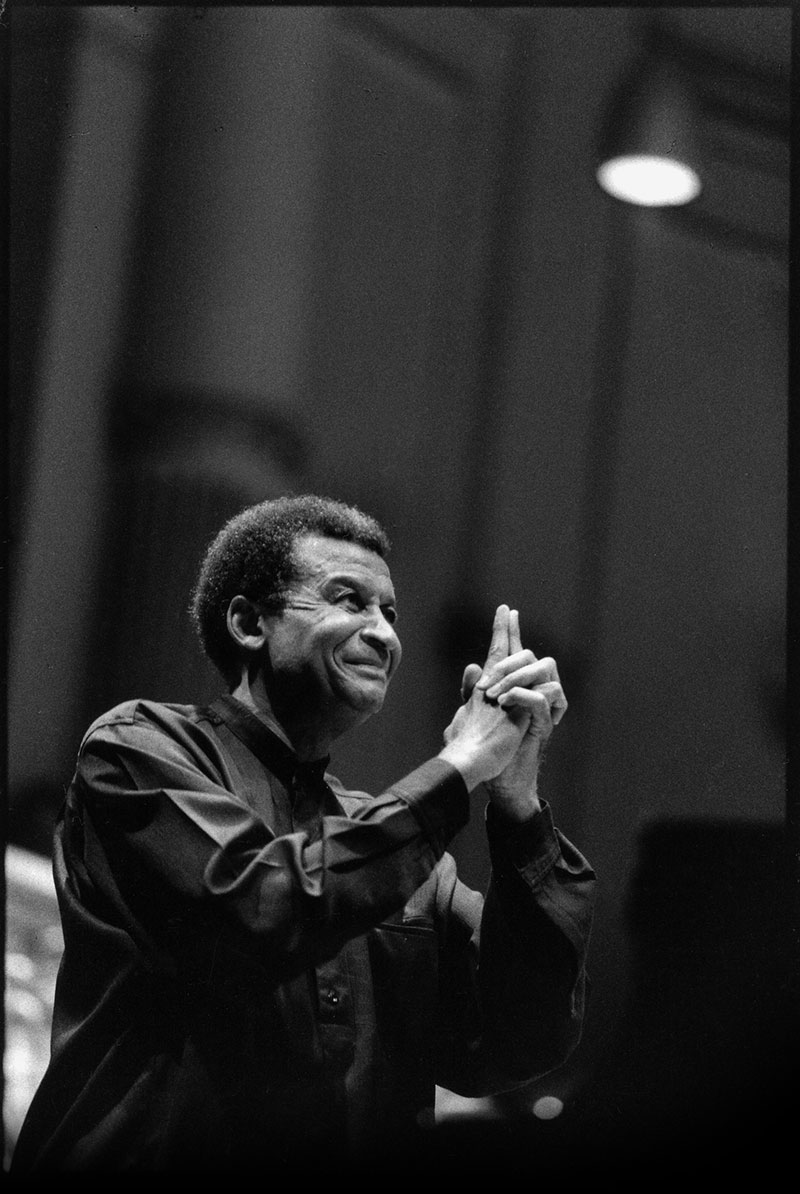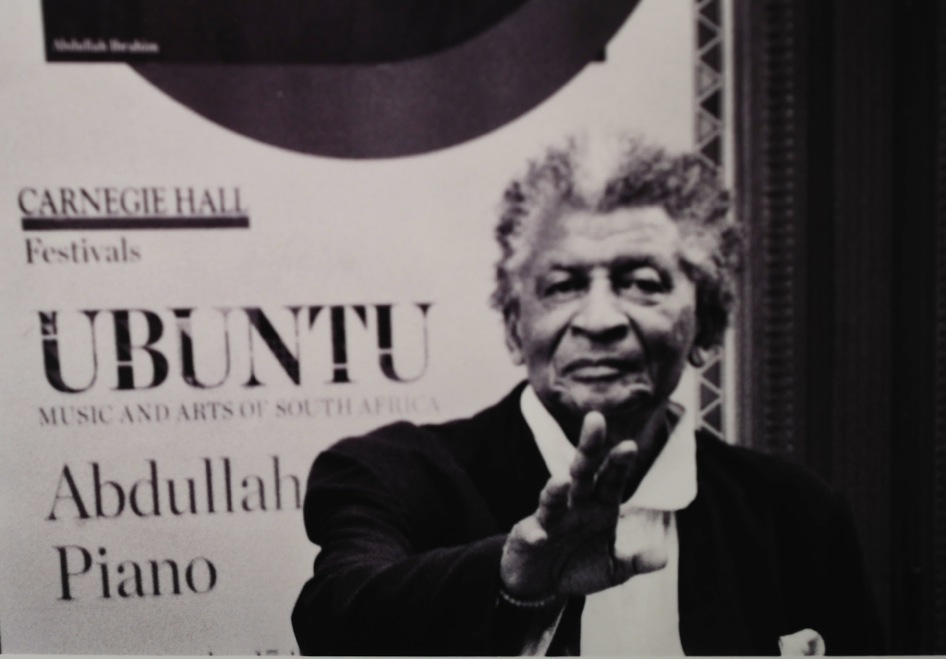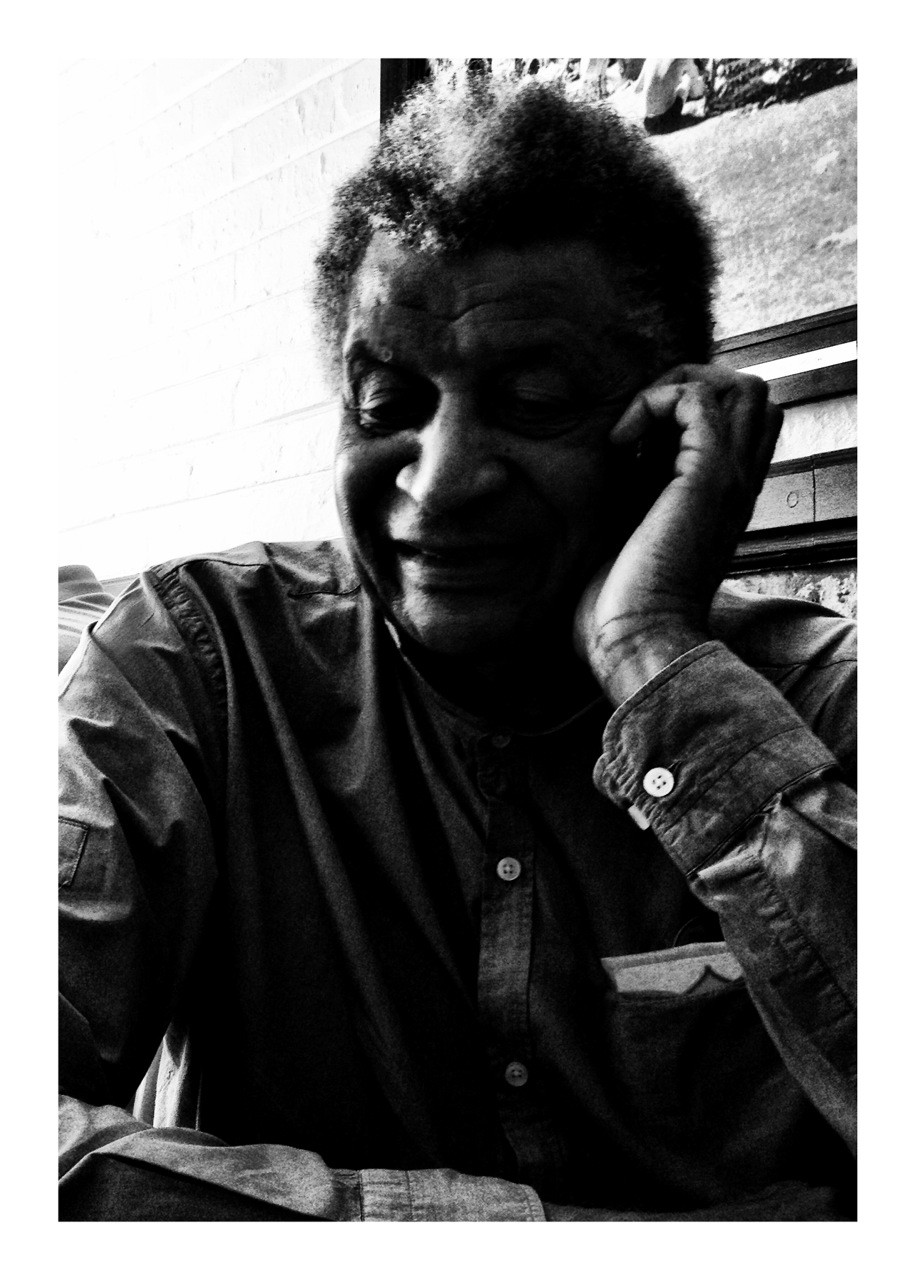Sundays at 7 p.m.
The Legal Eagle Review is an informative and thought-provoking weekly show covering legal issues affecting everyday people. Irving Joyner and April Dawson, law professors at North Carolina Central University School of Law, host this one-hour program. They invite knowledgeable guests to share useful and interesting information on important legal topics of concern to the local community, the state and the nation. The show airs Sundays from 7 p.m. until 8 p.m. The Legal Eagle Review is made possible by funding from the NCCU School of Law
Author ArchiveLegal Eagle Review – Podcast 9/11/22Tuesday, October 4th, 2022Mastering Your Money – Podcast 9/4/22Tuesday, October 4th, 2022
Legal Eagle Review – Podcast 9/4/22Tuesday, October 4th, 2022Sundays at 7 p.m. Abdullah IbrahimTuesday, October 4th, 2022Abdullah Ibrahim, South Africa’s most distinguished pianist and a world-respected master musician, was born in 1934 in Cape Town and baptized Adolph Johannes Brand. His early musical memories were of traditional African Khoi-san songs and the Christian hymns, gospel tunes and spirituals that he heard from his grandmother, who was pianist for the local African Methodist Episcopalian church, and his mother, who led the choir. The Cape Town of his childhood was a melting-pot of cultural influences, and the young Dollar Brand, as he became known, was exposed to American jazz, township jive, CapeMalay music, as well as to classical music. Out of this blend of the secular and the religious, the traditional and the modern, developed the distinctive style, harmonies and musical vocabulary that are inimitably his own.
He began piano lessons at the age of seven and made his professional debut at fifteen, playing and later recording with such local groups as the Tuxedo Slickers. He was in the forefront of playing bebop with a Cape Town flavour and 1958 saw the formation of the Dollar Brand Trio. His groundbreaking septet the Jazz Epistles, formed in 1959 (with saxophonist Kippie Moeketsi, trumpeter Hugh Masekela, trombonist Jonas Gwanga, bassist Johnny Gertze and drummer Makaya Ntshoko), recorded the first jazz album by South African musicians. That same year, he met and first performed with vocalist Sathima Bea Benjamin; they were to marry six years later. After the notorious Sharpeville massacre of 1960, mixed-race bands and audiences were defying the increasingly strict apartheid laws, and jazz symbolized resistance, so the government closed a number of clubs and harassed the musicians. Some members of the Jazz Epistles went to England with the musical King Kong and stayed in exile. These were difficult times in which to sustain musical development in South Africa. In 1962, with Nelson Mandela imprisoned and the ANC banned, Dollar Brand and Sathima Bea Benjamin left the country, joined later by the other trio members Gertze and Ntshoko, and took up a three-year contract at the Club Africana in Zürich. There, in 1963, Sathima persuaded Duke Ellington to listen to them play, which led to a recording session in Paris – Duke Ellington presents the Dollar Brand Trio – and invitations to perform at key European festivals, and on television and radio during the next two years. In 1965, the now married couple moved to New York. After appearing that year at the Newport Jazz Festival and Carnegie Hall, Dollar Brand was called upon in 1966 to substitute as leader of the Ellington Orchestra in five concerts. Then followed a six-month tour with the Elvin Jones Quartet. In 1967 he received a Rockefeller Foundation grant to attend the Juilliard School of Music. Being in the USA also afforded him the opportunity to interact with many progressive musicians, including Don Cherry, Ornette Coleman, John Coltrane, Pharaoh Sanders, Cecil Taylor and Archie Shepp.
Determined to manage his own affairs in America, he founded with Sathima, the record company Ekapa in 1981. The 1980s saw him involved with a range of artistic projects that depended on his music: Garth Fagan’s ballet Prelude (first performed 1981), the Kalahari Liberation Opera (Vienna, 1982), and in 1983 a musical, Cape Town, South Africa, featuring the septet he formed that year, Ekaya. In 1987, he played a memorial concert for Marcus Garvey in London’s Westminster Cathedral, and the following year he played at the concert in Central Park, New York, commemorating the seventieth birthday of Nelson Mandela. In 1990 Mandela, freed from prison, invited him to come home to South Africa. The fraught emotions of reacclimatizing there are reflected in Mantra Modes (1991), the first recording with South African musicians since 1976, and in Knysna Blue (1993). He memorably performed at Mandela’s inauguration in 1994. Abdullah Ibrahim has been the subject of several documentaries: for instance, Chris Austin’s 1986 BBC film A Brother with Perfect Timing, and A Struggle for Love, by Ciro Cappellari (2004). He has also composed scores for film, including the award-winning soundtrack for Claire Denis’s Chocolat (1988), as well as for No Fear, No Die (1990) and Idrissa Ouedraogo’s Tilai (1990), and he was featured in the 2002 production Amandla: A Revolution in Four-Part Harmony.
For more than a quarter-century he has toured the world extensively, appearing at major concert halls, clubs and festivals, giving sell-out performances, as solo artist or with other renowned artists (notably, Max Roach, Carlos Ward and Randy Weston). His collaborations with classical orchestras have resulted in acclaimed recordings, such as African Suite (1999, with members of the European Union Youth Orchestra) and the Munich Radio Philharmonic orchestra symphonic version, “African Symphony” (2001), which also featured the trio and the NDR Jazz Big Band.. Abdullah Ibrahim celebrated his seventieth birthday in October 2004, which occasion was marked by the release of two CDs by Enja Records (the Munich-based label with whom he has recorded for three decades): the compilation A Celebration, and Re:Brahim, his music remixed. His discography runs to well over a hundred album credits When not touring, he now divides his time between Cape Town and New York. In addition to composing and performing, he has started a South African production company, Masingita (Miracle), and established a music academy, M7, offering courses in seven disciplines to educate young minds and bodies. Most recently, in 2006, he spearheaded the historic creation (backed by the South African Ministry of Arts and Culture) of the Cape Town Jazz Orchestra, an eighteen-piece big band, which is set to further strengthen the standing of South African music on the global stage. A martial arts Black Belt with a lifelong interest in zen philosophy, he takes every opportunity to visit his master in private trips to Japan. In 2003 he performed charity concerts at temples in Kyoto and Shizuoka, the proceeds going to the M7 academy. Abdullah Ibrahim remains at his zenith, as a musician and a tireless initiator of new projects. In his own words: “Some do it because they have to do it. We do it because we want to….so we do not require much sleep… so we have to do it.” The recipient of many awards and honorary doctorates, spiritually strong as both teacher and disciple, Professor Abdullah Ibrahim is a true inheritor of the ancestral name SENZO. Originally published at abdullahibrahim.co.za Photo credits: abdullahibrahim.co.za Episode 4: Culture and Film Preserved – PodcastWednesday, September 28th, 2022
Our theme music is by Joshua Mickens. Special thanks to Al Dawson for his engineering help.
Episode 3: The College Experience in Durham Pt. 2 – PodcastSunday, September 18th, 2022
Shimei Cook hosts and co-produces this episode about the state of college life for students who were in college during the start of pandemic lockdowns and remote learning. Cook also discusses making friends on campus as a freshman with his roommate, both of whom were in high school during remote learning.
Our theme music is by Joshua Mickens. Special thanks to Al Dawson for engineering help.
Episode 2: The College Experience in Durham Pt. 1 – PodcastMonday, September 12th, 2022
Shimei Cook hosts and co-produces this episode about the state of college life for students who were in college during the start of pandemic lockdowns and remote learning. Cook also discusses making friends on campus as a freshman with his roommate, both of whom were in high school during remote learning.
Our theme music is by Joshua Mickens. Special thanks to Al Dawson for engineering help.
Episode 1: The State of Small Businesses in Durham – PodcastMonday, September 12th, 2022
Shanya Hayes hosts, reports and produces this episode about the state of small businesses in Durham. She shares stories from her own experiences, visiting her Grandmother’s business in Durham’s Lakewood neighborhood, working in restaurants and growing up in Durham.
Our theme music is by Joshua Mickens. Special thanks to Al Dawson for engineering help.
Preview: Subject to Change – PodcastThursday, September 1st, 2022
Cécile McLorin SalvantThursday, September 1st, 2022
Born and raised in Miami, Florida, of a French mother and Haitian father, she started classical piano studies at 5, sang in a children’s choir at 8, and started classical voice lessons as a teenager. Salvant received a bachelor’s in French law from the Université Pierre-Mendes France in Grenoble while also studying baroque music and jazz at the Darius Milhaud Music Conservatory in Aix-en-Provence, France. Salvant’s latest work, Ogresse, is a musical fable in the form of a cantata that blends genres (folk, baroque, jazz, country). Salvant wrote the story, lyrics, and music. It is arranged by Darcy James Argue for a thirteen-piece orchestra of multi-instrumentalists. Ogresse, both a biomythography and an homage to the Erzulie (as painted by Gerard Fortune) and Sara Baartman, explores fetishism, hunger, diaspora, cycles of appropriation, lies, othering, and ecology. It is in development to become an animated feature-length film, which Salvant will direct. Salvant makes large-scale textile drawings. Her visual art can now be found at Picture Room in Brooklyn, NY. Originally published at cecilemclorinsalvant.com Photo credits:
|



 Sundays at 6 p.m.
Sundays at 6 p.m.
 The year 1968 was a turning point. Searching for spiritual harmony in an increasingly fractured life, Dollar Brand went back to Cape Town, where he converted to Islam, taking the name Abdullah Ibrahim, and in 1970 he made a pilgrimage to Mecca. Music and martial arts further reinforced the spiritual discipline he found. After a couple of years based in Swaziland, where he founded a music school, Abdullah and his young family returned in 1973 to Cape Town, though he still toured internationally with his own large and small groups. In 1974 he recorded “Mannenberg – ‘Is where it’s happening’”, which soon became an unofficial national anthem for black South Africans. After the Soweto student uprising, in 1976, he organized an illegal ANC benefit concert; before long, he and his family left for America, to settle once again in New York.
The year 1968 was a turning point. Searching for spiritual harmony in an increasingly fractured life, Dollar Brand went back to Cape Town, where he converted to Islam, taking the name Abdullah Ibrahim, and in 1970 he made a pilgrimage to Mecca. Music and martial arts further reinforced the spiritual discipline he found. After a couple of years based in Swaziland, where he founded a music school, Abdullah and his young family returned in 1973 to Cape Town, though he still toured internationally with his own large and small groups. In 1974 he recorded “Mannenberg – ‘Is where it’s happening’”, which soon became an unofficial national anthem for black South Africans. After the Soweto student uprising, in 1976, he organized an illegal ANC benefit concert; before long, he and his family left for America, to settle once again in New York.
 Producer and intern Iyana Addison has been looking into the history of the Hayti Heritage Center, and the annual film festival it holds. This is a story about Durham, about people remembering and taking record of the things that have happened here, and championing Black art, culture and film.
Producer and intern Iyana Addison has been looking into the history of the Hayti Heritage Center, and the annual film festival it holds. This is a story about Durham, about people remembering and taking record of the things that have happened here, and championing Black art, culture and film. Cécile McLorin Salvant, is a composer, singer, and visual artist. The late Jessye Norman described Salvant as“a unique voice supported by an intelligence and full-fledged musicality, which light up every note she sings”. Salvant has developed a passion for storytelling and finding the connections between vaudeville, blues, folk traditions from around the world, theater, jazz, and baroque music. Salvant is an eclectic curator, unearthing rarely recorded, forgotten songs with strong narratives, interesting power dynamics, unexpected twists, and humor. Salvant won the Thelonious Monk competition in 2010. She has received Grammy Awards for Best Jazz Vocal Album for three consecutive albums, “The Window”, “Dreams and Daggers”, and “For One To Love”, and was nominated for the award in 2014 for her album “WomanChild”. In 2020, Salvant received the MacArthur fellowship and the Doris Duke Artist Award. Nonesuch Records released “Ghost Song” in March 2022.
Cécile McLorin Salvant, is a composer, singer, and visual artist. The late Jessye Norman described Salvant as“a unique voice supported by an intelligence and full-fledged musicality, which light up every note she sings”. Salvant has developed a passion for storytelling and finding the connections between vaudeville, blues, folk traditions from around the world, theater, jazz, and baroque music. Salvant is an eclectic curator, unearthing rarely recorded, forgotten songs with strong narratives, interesting power dynamics, unexpected twists, and humor. Salvant won the Thelonious Monk competition in 2010. She has received Grammy Awards for Best Jazz Vocal Album for three consecutive albums, “The Window”, “Dreams and Daggers”, and “For One To Love”, and was nominated for the award in 2014 for her album “WomanChild”. In 2020, Salvant received the MacArthur fellowship and the Doris Duke Artist Award. Nonesuch Records released “Ghost Song” in March 2022.
